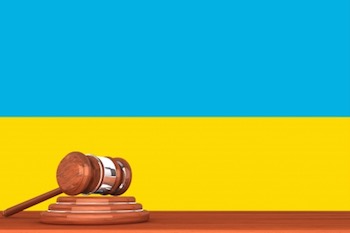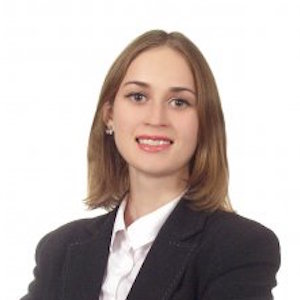 After a decade of disputes and lobbying, Ukraine has finally joined the countries with special IP courts or patent courts, namely the United Kingdom, the United States, China, Brazil, Germany, Sweden, Japan, Chile, France, Peru, Portugal, Russia, Spain and others.
After a decade of disputes and lobbying, Ukraine has finally joined the countries with special IP courts or patent courts, namely the United Kingdom, the United States, China, Brazil, Germany, Sweden, Japan, Chile, France, Peru, Portugal, Russia, Spain and others.
New court in Ukrainian style
On June 03, 2016, the Parliament of Ukraine adopted a law on reforming the judicial system of Ukraine. Currently, the law is awaiting the President’s signature. The reform provides for establishing the High Court on Intellectual Property Issues by autumn 2017 as a court of the first instance for copyright, trademark and patent disputes. Judicial decisions will be reviewed in the court of appeal within the chamber of the Supreme Court of Ukraine.
The law provides for establishing the judiciary ‘from scratch’. Ukrainian patent attorneys and lawyers, specializing for over 5 years in intellectual property protection, have already lined up in the hope of getting the qualification of a judge.
They can be understood, as the new law stipulates for a significant rise in the salary of judges – almost fourfold compared to the current salary rate. The judicial reform writers hope this will eliminate a corruption element of the Ukrainian judicial system.
The judicial reform critics mention that there are not so many intellectual property cases to establish a separate court. However, a big plus for a right holder is an opportunity to consider a case in a more effective and professional manner, as the judges will be competent in intellectual property issues and have a corresponding work experience in this field. We hope the judicial practice will finally be harmonized and foreseeable and not so contradictory as it is now, when intellectual property cases are heard by the judges used to settle land, administrative or corporate disputes in the regions of Ukraine. There will be no need to search for a ‘convenient’ court to settle a dispute in a qualitative and prompt manner.
Best practices of other countries
Other countries have a positive practice of hearing disputes in a single court. With an annual increase in the number of patent and trademark applications, more and more disputes arise in the field of intellectual property.
In May 2016, the International Chamber of Commerce (ICC) published a report on Specialized Intellectual Property Jurisdictions. The report claims that limiting the number of courts eligible to deal with IP disputes improve the quality of case outcomes.
The competence of a judge is particularly important in patent disputes. The specialized courts for patent disputes were established in the United States, Switzerland and the United Kingdom.
In other countries, the structure of specialized courts is different. For example, India has court chambers for intellectual property disputes within existing commercial courts. In Belgium, one of district courts has exclusive jurisdiction over IP disputes. China has both a separate court for intellectual property cases and IP specialized divisions within local courts. In Thailand, there is a special court of first instance, which has exclusive jurisdiction over all disputes related to intellectual property and international trade. The example of Thailand is very similar to the system being established in Ukraine.
It is interesting, whether an approach to IP forensic search will change within the Ukrainian judicial reform. Today in Ukraine, court assigns an expert and a list of questions to be answered by an expert on the motion of the parties. In the United States, the federal courts are authorized to engage a special judge expert independently. In France, India and the United Kingdom, parties are authorized to engage their technical experts and submit their findings as evidence in cases where a judge is legally qualified but not competent in the technical details of inventions.
Monopoly of attorneys–at–law
Another important change in the judicial system of Ukraine is the fact that from 2017only attorneys-at-law (barristers) will be authorized to represent parties in intellectual property court. Prior to adopting the new law, patent attorneys, company directors and legal advisors were also allowed to represent their clients in court.
This approach is also effective in China, Mexico, Russia, Peru and Sweden. In these countries, all types of representatives are authorized to stand for clients in court. Meanwhile, only barristers are entitled to represent clients in IP disputes in Spain, Portugal, Chile and France. This is connected with the history and traditions of jurisprudence in each particular country.
As soon as the new law comes into effect, Ukrainian patent attorneys will be authorized to participate in court proceedings only as technical advisors to attorneys-at-law or will have to obtain a certificate of barrister. This news is of particular concern to the author of this article, who has not yet become an attorney but has been representing clients in intellectual property disputes for a long time.
Execution of judgments
Finally, the last issue of judicial reform is execution of case rulings. Neither country, in which an IP court has been established, has any special judgment enforcement mechanism. The judgment is executed within the framework of common civil procedures accepted in the country. As for Ukraine, the judicial reform has also affected the reform of judgment enforcement authorities. The new institution of private judicial executors appeared. For right holders, it is a chance to procure judgment execution after winning a case in a more effective manner. Meanwhile, it is unclear how to execute a judgment of a specialized IP court in foreign countries, which have already signed international treaties on the enforcement of judgments in civil, criminal and commercial cases.
Ukraine is constantly changing, and we hope these changes will be effective and will help Ukraine to be a law-governed state with a viable mechanism of justice.

![[IPWatchdog Logo]](https://ipwatchdog.com/wp-content/themes/IPWatchdog%20-%202023/assets/images/temp/logo-small@2x.png)

![[Advertisement]](https://ipwatchdog.com/wp-content/uploads/2024/04/Artificial-Intelligence-2024-REPLAY-sidebar-700x500-corrected.jpg)
![[Advertisement]](https://ipwatchdog.com/wp-content/uploads/2024/04/UnitedLex-May-2-2024-sidebar-700x500-1.jpg)
![[Advertisement]](https://ipwatchdog.com/wp-content/uploads/2024/04/Patent-Litigation-Masters-2024-sidebar-700x500-1.jpg)

![[Advertisement]](https://ipwatchdog.com/wp-content/uploads/2021/12/WEBINAR-336-x-280-px.png)
![[Advertisement]](https://ipwatchdog.com/wp-content/uploads/2021/12/2021-Patent-Practice-on-Demand-recorded-Feb-2021-336-x-280.jpg)
![[Advertisement]](https://ipwatchdog.com/wp-content/uploads/2021/12/Ad-4-The-Invent-Patent-System™.png)






Join the Discussion
No comments yet.